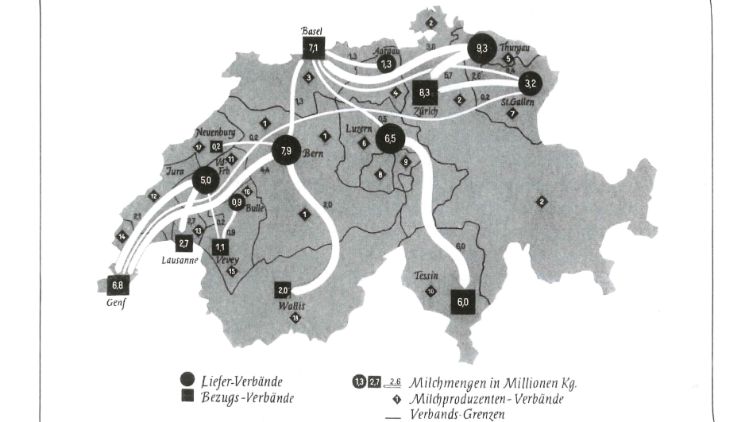
The Second World War
After 15 years of normality, the Second World War breaks out (1 September 1939) and a state of emergency is reimposed.
1937
1942
Transformation to arable farming
Once again, the supply of milk products for the population is managed centrally. On the very day that war is declared, the Swiss Federal War Food Office and the Central Swiss Milk Producers sign an agreement to this effect. This remains in force for two years until an order is passed to convert cattle farming into arable farming, and from 1942 onwards milk has to be rationed as a result.

1944
Milk regulation unit
The ZMV acquires a herder's hut in Hasli-Emmen and in 1945 turns this into a milk regulation unit.
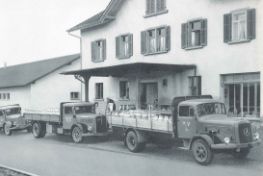
1945
Testing facility
The Neuhüsern cheese dairy is converted into a testing facility for soft and semi-soft cheese.
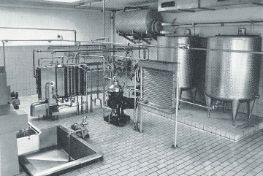
1947
Emmi brand
The Emmi brand is born!
A dessert cheese from the Emmen soft cheese dairy is launched on the market under the Emmi brand. The range includes Tilsiter, Bel-Lago, Znünikäse and Münster.
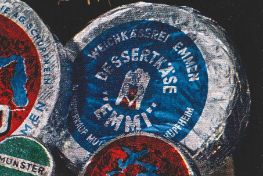
1948
First Emmi yogurt
The first Emmi yogurt is marketed in the city and region.
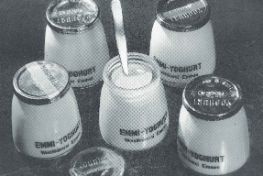
1949

